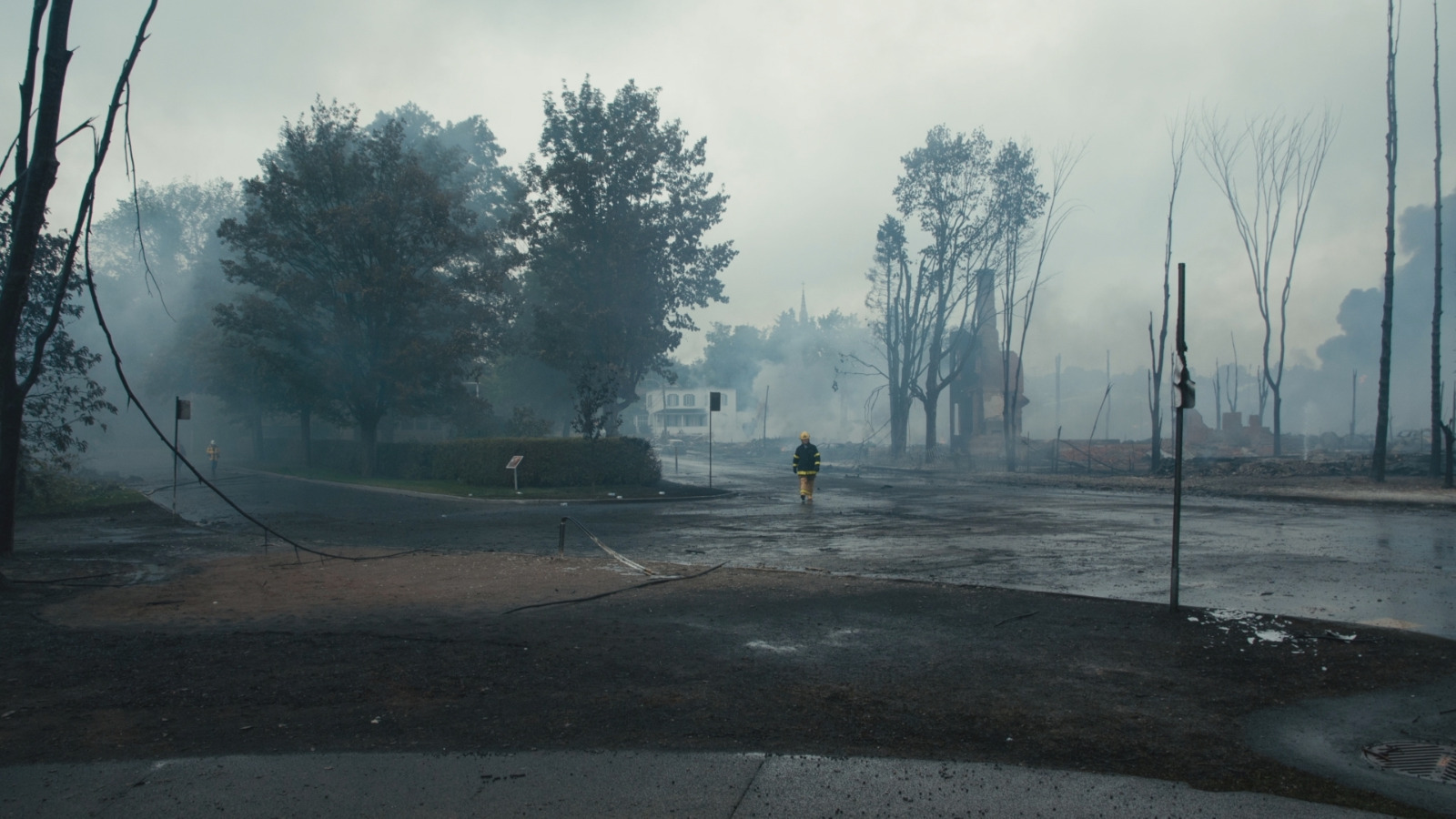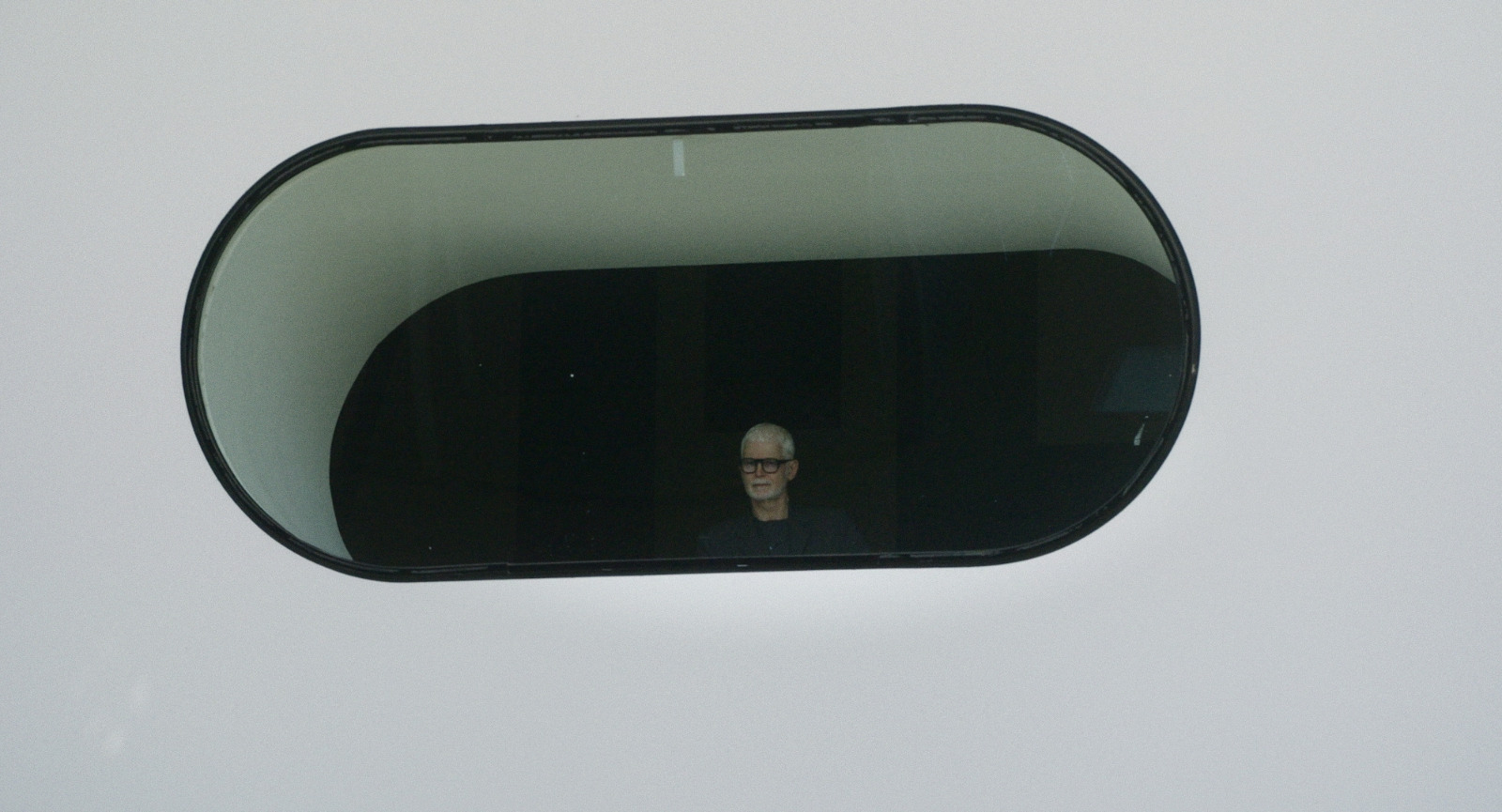“It’s funny,” observes Lac-Mégantic director Philippe Falardeau. “Even the one that begins with a woman hanging herself in the classroom, which is Monsieur Lazhar, every one of my films has humour. For this one, that was impossible, but I think it’s going to be the work in my life that just had to be dramatic.”
Falardeau’s observation about the necessity of drama for his latest work, Lac-Mégantic: This Is Not an Accident is ironic, for it’s his first documentary since the early days of his career. It’s also a career high that reflects the social consciousness and deep humanity of his dramas like the Oscar-nominated Monsieur Lazhar (2011), My Internship in Canada (2015), and Congorama (2006). The four-part documentary series is an emotional epic that unpacks the 2013 rail tragedy that killed 47 people when an unattended freight train carrying dozens of cars’ worth of crude oil crashed into the downtown core of Lac-Mégantic. The series, which recently premiered at Hot Docs, confronts the inevitability of the disaster. It tells the story from multiple perspectives: people who sounded the alarm, people who looked the other way, and people who lost loved ones in a flash during the middle of the night.
Speaking with POV at Hot Docs, Falardeau says he planned to follow his 1997 NFB doc Pâté chinois with a documentary about his unemployed roommate, but when said friend finally scored a job, the film became a mockumentary. That film, La moitié gauche du frigo (2000), proved Falardeau’s breakout. It won Best Canadian First Feature at TIFF, among other honours.
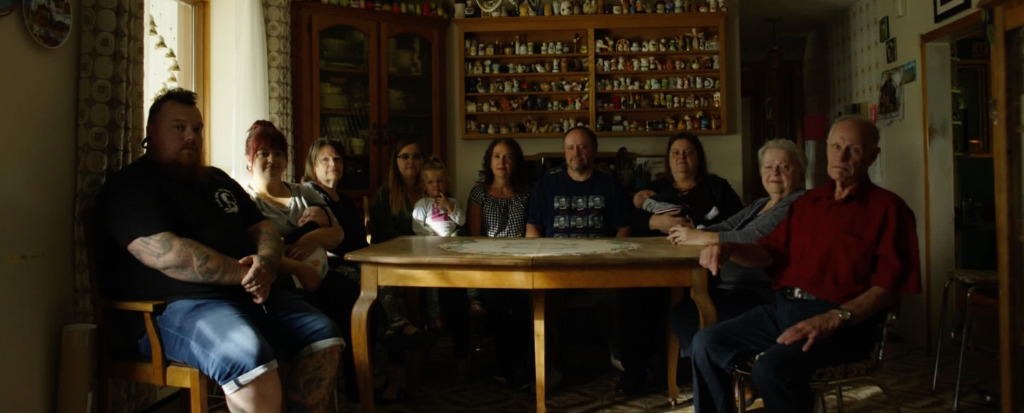
No Looking Back
“I never looked back because I always thought the documentary was the highest form of cinema,” says Falardeau. “You get to tell a story with the same tools, but less money, less glamour, less resources, and you have a moral contract with the people. I was either not ready or not equipped for that, and I went into fiction. But when I thought about Mégantic, it became clear that I had to be a documentary. Some of the issues are not closed and it was too soon to do a fiction film about it. I wanted the real voices of the people in Mégantic to carry this story.”
Being away from documentary for a while, though, Falardeau says he needed a hand and was connected with writer/producer Nancy Guerin (Pink Ribbons, Inc.; A Sister’s Song) through a common producer. For Guerin, the project was an opportunity to tell the full story of the tragedy from all angles. “Nobody’s told the whole story of Mégantic in this way,” says Guerin. “There’s a lot of articles and good work—Anne-Marie Saint-Cerny’s book [A Train in the Night] and Bruce Campbell wrote quite a good book as well [The Lac–Mégantic Rail Disaster: Public Betrayal, Justice Denied]. I remember reading Anne-Marie’s book and being like, ‘This isn’t true,’ and I’d have to go back and research. It was one injustice after the other.”
“Our job was about bringing the pieces of the puzzle together, to be fair to the journalists that came before us,” notes Falardeau. “Everyone did an amazing job, but everyone had a one-page article or a five minute report and they couldn’t cover what we covered. We just brought it up and tried to link them.”
“Without the work of the journalists, we’d be lost,” agrees Guerin.
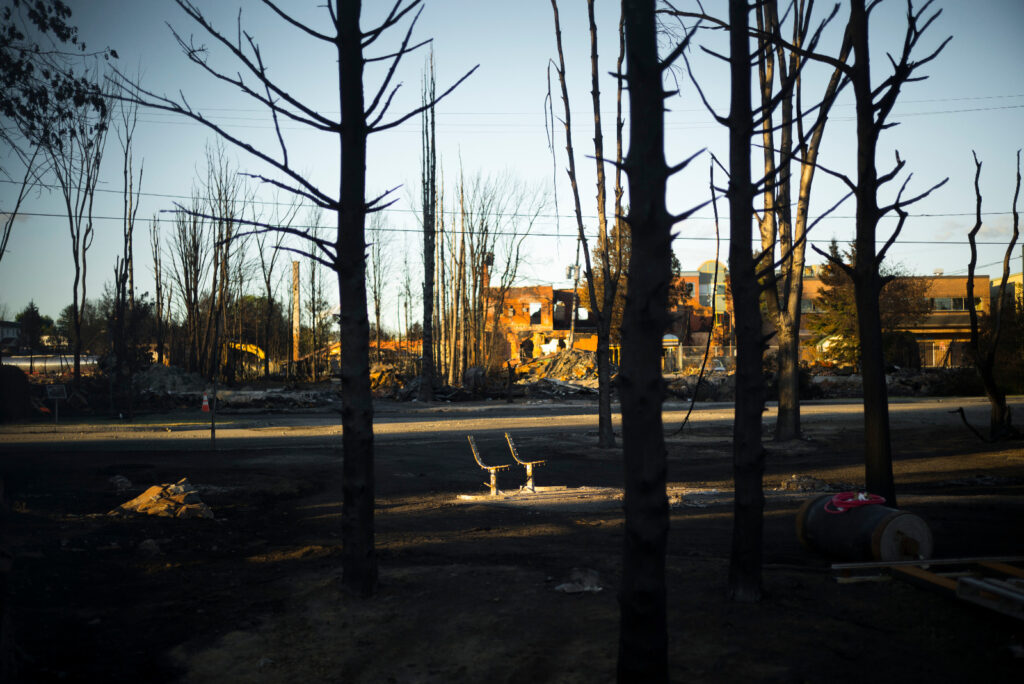
Documenting a Domino Effect
Saint-Cerny appears in the series as an impassioned third party, while conversations with families of the victims illustrate the series of injustices they continue to experience. The series portrays a town united by tragedy, but then divided by the fallout as the provincial and federal governments abandoned the small town to deal with a situation for which it was simply ill-equipped. (Interviews with the former mayor are simply devastating.) Then, as plans for the renewal of the downtown core coincide with land grabs and forcible evictions to favour commercial developers over surviving residents, and plans for a rail bypass aim to bring trains across the properties of families who are still reeling from grief, the documentary takes audiences through a roller coaster of emotions to convey the families’ pain.
“It’s so emotionally involving,” acknowledges Falardeau. “You go home at night and there’s no fire door closing behind you. The emotion and the testimonies pour into your house and you sleep looking at the ceiling, thinking about these people and thinking about their grief.”
Falardeau and Guerin say that the responsibility of telling this story for their participants pushed them to debate every aspect and consider every edit, every line reading, and every domino. “I have to make sure that they recognize themselves, but at the same time, I have to tell the best story possible,” adds Falardeau. “Sometimes it might be hard for them to look at it, so you are always struggling: best story possible versus the moral contract you have with these people.”
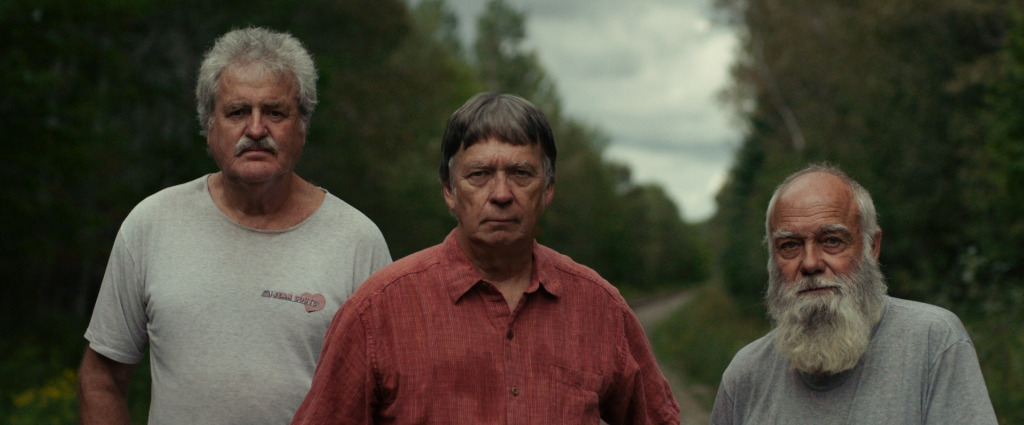
The Voices of Lac-Mégantic
For example, the filmmakers cite the participation of Pascal Charest. His interview is an emotional lynchpin of Lac-Mégantic as he recalls taking a shift on the taxicab to make better use of a sleepless night. Charest explains how he drove outside town to pick up locomotive engineer Tom Harding and brought him to a motel after he’d parked the train for the night. Soon thereafter, that train rolled into town and Charest lost his wife and two young daughters in the explosion. They were asleep in their beds.
“He lives in Sept- Îles and we were willing to fly him in,” explains Guerin. “He didn’t want to spend the night—he wanted to go right back, but he ended up staying. We asked him why. He said, ‘Nobody’s done anything for my little girls,’” Guerin continues, visibly overcome with emotion. “He said, ‘This was something I could do for them. My girls died and nobody was held accountable. Things are exactly the way they were before. Or it may be worse because there’s a lot of more dangerous chemicals riding the rails.’ I think talking to us therapeutic.”
“There was a weight off of his shoulder,” adds Falardeau. “He was smiling when he left.”
The Accountability Game
Lac-Mégantic takes other emotional turns when interviewees who outline the failures of the system—the inadequate number of brakes applied, poor testing, single-operator rides, faulty lines, a poor response from supervisors, etc.—reappear in later episodes to confront their inadvertent role in the tragedy. Rail traffic controller Richard Labrie and operations manager Jean Demaître, both of whom were tried alongside Harding but ultimately acquitted, appear in the documentary. They recall the events that precipitated the tragedy. Emotions run high as the men speak about small mistakes that cost lives, but also recall the public trial that basically made them scapegoats while the rail company and government agencies intended to provide oversight weren’t held accountable.
The series doesn’t get an interview with Harding—one of few omissions in the impressive cast—but Falardeau and Guerin say they reached out without high expectations. They didn’t push back when they didn’t receive a response. “It is still interesting to have people talk about him and he’s hovering over the series,” notes Falardeau. “When you see him at the end of the trial, it’s really moving in the archive because you get a feeling that he’s going to make himself pay for the rest of his life.”
“I don’t know why he would talk,” adds Guerin. “I don’t know if I would, and it’s probably also out of respect for the people of Mégantic.”

The Railway Man
One surprising interview that the series includes, however, is with Edward Burkhardt, former chairman of Montreal, Maine and Atlantic (MMA)—the rail line whose train exploded in Lac-Mégantic. Burkhadt pulls no punches as he matter-of-factly explains the company’s position on its procedures. While he doesn’t accept responsibility in the series, archival clips show him making the trip to Lac-Mégantic to survey the damage, offer condolences to families, and see what MMA could do. (MMA ultimately filed for bankruptcy, leaving others to clean up the mess.)
“We disagree with him on a lot of things. He wants less regulations, we want more,” notes Falardeau. But one thing that didn’t help him when he came to Lac-Mégantic, and we show that in the second episode, was that he was ill-equipped to deal with that kind of emotion. Every time he is caught up in an emotional situation, he has this Joker smirk on his face. It’s a nervous smile. People thought he was laughing at them or that he didn’t care, which wasn’t true.” The series sees Burkhadt encounter a mob of Mégantic residents as he becomes the face for their pain. It’s intense, gripping footage that shows how hard the town has had to fight to hold somebody in power accountable.
“I can say whatever I want about capitalism, but I don’t think this man ever wanted this town to suffer,” observes Guerin.
“But we’ll have to give him this,” adds Falardeau. “He said yes. We asked two of our Ministers and they said no. He said yes.”
“I Told You So”
Burkhardt’s presence in the series illustrates how Lac-Mégantic looks beyond assigning blame. The tragedy is bigger than one man or company, as the documentary shows in the fourth episode when another rail crash occurs near Field, British Columbia, and claims three lives. New families enter the story with interviews that echo the grief, frustration, and lack of closure.
“We don’t know the real amount of these accidents or what happened because they investigate themselves. They close it,” explains Guerin. “The rates of dangerous situations are possibly a lot higher than we think. For us, we had Transport Canada and everybody playing a game of Hot Potato, but then nobody’s accountable. As one of our interviewees says, ‘Everybody’s working in a silo.’”
“I hope people become angry, but at the end, I feel frustration. You see the citizens trying to take the matters into their own hands, so I would love the audience to zoom out and understand that this is very much about the relationship between power and industries that have economic weight,” says Falardeau. “The subtitle is This Is Not an Accident. I wouldn’t want to change it next year to I Told You So. The series says something that needs to be done because, otherwise, we’ll be forced to say, ‘We told you so.’”
Lac-Mégantic: This Is Not an Accident screened at Hot Docs 2023.
It premieres May 2 on Vrai.
Get more coverage from this year’s festival here.




